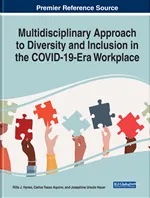Staying in STEM

Research in the Career Development Lab investigates contributors to STEM embeddedness, commitment, and persistence.
Sample Publications
Linking Undergraduate Professional Identity Development in Engineering to Major Embeddedness and Persistence
ABSTRACT
Although the development of professional identity is thought to play a central role in the career development process, little empirical research has examined change in professional identity over time and its connection to adjustment and persistence in a professional field of study. In this research, latent growth modeling was used to examine the effects of pre-college professional identity and change in professional identity through the first year of college in a sample of en gineering students (N = 295). Results indicated that professional identity prior to entering college and rate of change in professional identity over the first year of study were related to major embeddedness dimensions of fit (i.e., match between oneself and the major), links (i.e., profes sional connections), and sacrifice (i.e., costs and benefits associated with leaving the major). Rate of change in professional identity was also positively related to persistence in the engineering major the following year. Despite the general utility of professional identity in predicting embeddedness, men and women differed in several important parameter estimates. This research suggests professional identity development is best conceptualized and empirically examined as a dynamic process that occurs over time, contributes to understanding of the factors underlying adjustment and persistence of women and men in STEM career pathways, and emphasizes the importance of fostering pre-college professional identity and professional identity development early in professional programs of study.
*Burleson, S. D., Major, D. A., Hu, X., & Shryock, K. J. (2021). Linking undergraduate professional identity development in engineering to major embeddedness and persistence. Journal of Vocational Behavior, 128, 103590. https://doi.org/10.1016/j.jvb.2021.103590
The Development and Validation of STEM Major Embeddedness and University Embeddedness Scales
ABSTRACT
Ensuring the adequacy of the science, technology, engineering, and mathematics (STEM) workforce is a priority in the United States. STEM persistence in college is essential to building career pathways, but research is needed to explain voluntary attrition. We applied embeddedness theory to develop and evaluate a 14-item measure of STEM major embeddedness and a 12-item measure of university embeddedness. Using multiple undergraduate samples, we conducted item-sort tasks, exploratory factor analyses, and confirmatory factor analyses to ensure psychometric quality and to refine multidimensional scales, each with dimensions of fit, links, and sacrifice. Findings supported content, convergent, discriminant, and criterion-related validity. Mapping the nomological network, embeddedness was related to social and human capital, major satisfaction, major commitment, and persistence. Future research and practical applications are discussed.
Major, D. A., Cigularov, K. P., *Litano, M. L., *Streets, V. N., Henson, J. M., & *Reynoldson, K. R. (2020). The development and validation of STEM major embeddedness and university embeddedness scales. Human Performance. DOI: 10.1080/08959285.2020.1802727
https://www.tandfonline.com/doi/full/10.1080/08959285.2020.1802727
Using Embeddedness Theory to Understand and Promote Persistence in Science, Technology, Engineering, and Mathematics
ABSTRACT
Student retention in science, technology, engineering, and mathematics (STEM) majors is a national concern. Research typically emphasizes attrition in STEM fields by examining factors driving students to switch career paths. This study used embeddedness theory to instead focus on factors that better anchor students within their majors. Focus groups were conducted with 21 junior and senior students majoring in STEM to contextualize the 3 tenets of embeddedness: fit, links, and sacrifice. Results supported embeddedness theory as a viable framework for understanding and promoting STEM student retention because fit, links, and sacrifice were all cited as factors that enriched the student experience. Gender differences suggested a heightened sense of pride for women as compared with men who pursue STEM degrees. Results inform ways to contextualize quantitative measures of STEM embeddedness. To facilitate retention, career counselors, instructors, and others may assist students to frame challenge as normal among persisting STEM upperclassmen.
*Morganson, V. J., Major, D. A., *Streets, V. N., *Litano, M. L., & *Myers, D. P. (2015). Using embeddedness theory to understand and promote persistence in science, technology, engineering, and mathematics majors. Career Development Quarterly, 63, 348-362.
One is the Loneliest Number: Comparing Ethnic Minority Solos and Non-Solos
ABSTRACT
Purpose: Ethnic minorities are underrepresented in many science, technology, engineering, and mathematics (STEM) fields, including information technology. The purpose of this study was to better understand the negative effects of ethnic minority tokenism and the isolation of "solo" status. A solo is the only representative of his/her ethnicity in a workgroup.
Design/methodology/approach: Using web-based survey data collected from 239 ethnic minorities working in information technology, multivariate analysis of variance (MANOVA) was used to compare the experiences of solos and non-solos.
Findings: Compared to non-solos, solos were less likely to perceive equal opportunity in the workplace, reported less affective support from coworkers, and experienced less satisfaction with the social environment. There were no differences between solos and non-solos with respect to leader-member exchange, satisfaction with supervision, or instrumental coworker support. When as few as 1−9% of the workgroup were the same ethnicity as the focal individual, affective support and perceptions of equal opportunity were increased. Satisfaction with the social environment increased when the workgroup had at least 20% of similar others.
Implications: There is no single ethnic minority experience at work. The relative representation of one's own ethnic group matters. Workplaces can eliminate the negative effects of solo status by increasing representation of a given ethnic minority group beyond 10% of a workgroup.
Major, D. A., *Fletcher, T. D., *Streets, V., & Sanchez-Hucles, J. (2014). One is the loneliest number: Comparing ethnic minority solos and non-solos. Journal of Women and Minorities in Science and Engineering, 20, 341-358.
Understanding How Peer Mentoring and Capitalization Link STEM Students to Their Majors
ABSTRACT
This study investigated the role of peer mentoring and voluntary self‐development activities (i.e., capitalization) in anchoring science, technology, engineering, and mathematics students to their college majors. Online data were collected from 214 undergraduate students. As hypothesized, mentoring was positively related to capitalization, and both mentoring and capitalization were positively related to satisfaction with one's major, affective commitment to one's major, involvement in one's major, and willingness to be a mentor. Contrary to expectations, capitalization did not mediate the relationship between peer mentoring and student outcomes, suggesting that these constructs contribute independently to positive outcomes. Implications and future research directions are discussed.
Holland, J. M., Major, D. A., & Orvis, K. A. (2012). Understanding how peer mentoring and capitalization link STEM students to their majors. Career Development Quarterly, 60, 343-354.
The Influence of Proactive Personality and Coping on Commitment to STEM Majors
ABSTRACT
Despite increasing demand for workers in fields that are grounded in science, technology, engineering, and math (STEM), retention rates are low among relevant college majors. Using Web‐based survey data from 290 STEM majors, the authors investigated links among personality, coping strategies, and STEM major commitment. Proactive personality was positively related to STEM major commitment and to the active planning coping strategy and negatively related to behavioral disengagement. Active planning was positively related to commitment to STEM majors and behavioral disengagement was negatively related to the outcome. Coping strategies fully mediated the relationship between proactive personality and commitment to STEM majors.
Major, D. A., *Holland, J.M., & *Oborn, K. L. (2012). The influence of proactive personality and coping on commitment to STEM majors. Career Development Quarterly, 60, 16-24.
Recent Book Chapters

- *Burleson, S. D, *Eggler, K. D., & Major, D. A. (in press). A diversity and inclusion perspective on organizational socialization in the new age of remote work. In R. J. Hynes, C. T. Aquino & J. Hauer (Eds.), Multidisciplinary approach to diversity and inclusion in the covid-19 era workplace.

- *Streets, V.N., Major, D. A., & *Morganson, V. J. (2015). Building inclusive IS&T work climates for women and men. In M. Khosrow-Pour (Ed.), Encyclopedia of information science and technology, 3rd ed. (pp. 753-761). Hershey, PA: Information Science Reference.